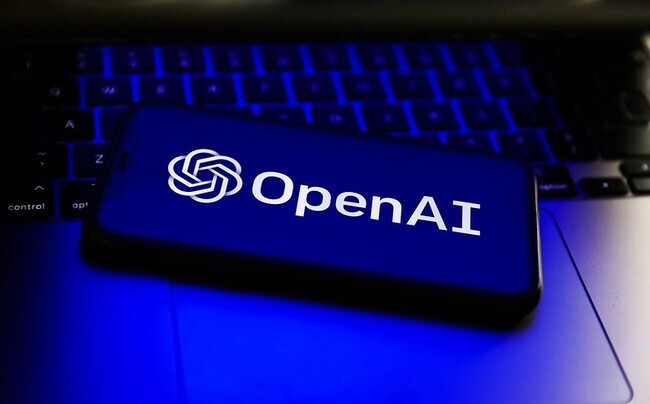Highlights:
- Hackers gained access to OpenAI’s press account on X.
- The hackers advertised a fraudulent “OPENAI” token through the official account.
- This method mirrors past hacking incidents involving the company’s executives.
OpenAI’s official press account on X (formerly Twitter) was hacked late Monday. The hacker posted about a new fake token named $OPENAI and urged users to claim tokens by connecting their wallets to a phishing website. This attack marks the fourth reported hack related to OpenAI on X and at least the fifth cybersecurity incident since January 2023.
The incident was revealed when X users observed suspicious activity on the “OpenAI Newsroom” account around 10:26 PM UTC. Screenshots showed the account promoting OPENAI tokens, which it claimed would “bridge the gap” between AI and blockchain, enabling users to participate in future beta programs.
Grok developer Benjamin De Kraker noted:
“The official OpenAI Newsroom account has been hacked and is shilling fake shitcoins.”
The post contained errors, such as calling it “$OPEANAI” instead of “$OPENAI.” In reality, $OPENAI is nonexistent, and the phishing site used a misleading URL, “token-openai.com,” to deceive users into revealing their wallet credentials. The hackers wrote, “Comments disabled due to malicious links. Good luck all!” under the main post. This tactic is commonly used to prevent users from warning others about the hack.
The official OpenAI Newsroom account has been hacked and is shilling fake shitcoins. pic.twitter.com/hMYsHRWzs2
— Benjamin De Kraker 🏴☠️ (@BenjaminDEKR) September 23, 2024
Neither OpenAI nor CEO Sam Altman has addressed the alleged September 23 hack on their website or X. However, OpenAI’s official press account on X has removed all malicious posts.
OpenAI Faces Backlash Over Multiple Security Breaches
This marks the fourth hack on an OpenAI-affiliated X account since June 2023. Previous victims include the company’s researcher Jason Wei (hacked on September 22), CTO Mira Murati (June 2023), and Chief Scientist Jakub Pachocki (June 2024). Each attack promoted the same token.
Furthermore, in early 2023, another hacker breached OpenAI’s internal forum, gaining access to sensitive employee data and confidential communications. While the attack didn’t affect core systems, the repeated breaches have sparked criticism.
Tanishq Mathew Abraham, PhD, and CEO of the Medical AI Research Center, encouraged OpenAI employees to adopt stronger security measures, such as two-factor authentication.
OpenAI employees should probably check their scheduled posts on X to make sure there isn't one in there waiting to send.
And change their passwords.
And log in using 2FA with an Authenticator App, not SMS. pic.twitter.com/eUMCf98K35
— Smoke-away (@SmokeAwayyy) September 23, 2024
Rising Cryptocurrency Scams Lead to Billions in Losses Globally and in the U.S.
In recent years, numerous well-known X accounts belonging to tech companies and celebrities have been targeted to promote cryptocurrency scams. One of the most notorious incidents occurred in 2020 when hackers compromised the accounts of Apple, Elon Musk, and Joe Biden. They posted a BTC wallet address along with a fraudulent claim that any funds sent to the address would be doubled and returned to the sender.
Cryptocurrency scams are becoming more prevalent, with Americans losing billions across the country. Scammers typically request cryptocurrency transfers, which are difficult to trace once sent, particularly to countries that do not cooperate with U.S. law enforcement.
Blockchain security firm CertiK reported that cryptocurrency scams in 2024 have resulted in significant losses, amounting to billions globally. The FBI revealed that in 2023, Americans alone lost $5.6 billion to crypto-related scams, expected to increase in 2024.





